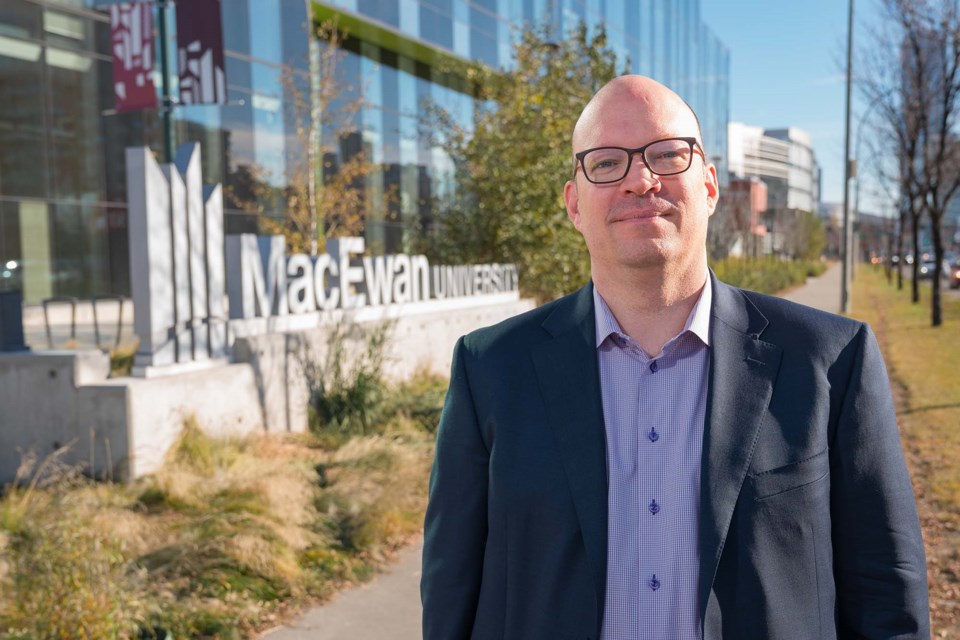A St. Albert professor says he hopes his new online guide will help teachers create safe spaces for sexual and gender minority students.
MacEwan University professor and St. Albert resident Kristopher Wells announced the launch of the RISE Project on 2SLGBTQ+-Expansive Teacher Education on Twitter on Feb. 7.
The project itself is a website which shows new teachers how to incorporate 2SLGBTQ+ (two-spirit, lesbian, gay, bisexual, transgender, queer, and additional) perspectives into their classrooms to prevent discrimination and improve student education, said Wells, project co-author and the Canada Research Chair for public understanding of sexual and gender minority youth.
Safer schools
St. Albert students continue to face discrimination based on gender or sexual identity, said Bekah Marcellus, a community outreach worker with the Outloud Foundation. Many trans students she worked with report being misgendered and deadnamed (referred to by their old, pre-transition name) in school, which harmed their grades and mental and physical health.
2SLGBTQ+ students still experience unsafe classrooms and hallways despite the rise of gay-straight alliances, Wells said. A 2021 study by Egale Canada found some 62 per cent of 2SLGBTQ+ students said they felt unsafe at school, compared to just 11 per cent of cisgender heterosexual ones. About 30 per cent of 2SLGBTQ+ students had been the victims of cyberbullying, compared to just eight per cent of cisgender heterosexual ones.
“2SLGBTQ+ students are still at risk in schools, and one of the best ways to reduce prejudice is through education,” Wells said.
Research by the RISE team found that about 85 per cent of Canadian educators supported 2SLGBTQ+ inclusive education but that just 37 per had actually done any of it in their schools.
Wells said the RISE Project aimed to bridge this gap by offering guides, lessons, and other resources to show prospective teachers how to build inclusive schools before they even set foot into their future classrooms.
The website offers numerous tips on how to “queer” the curriculum by applying an 2SLGBTQ+ lens to it. Teachers could use stories written by 2SLGBTQ+ authors, for example, challenge students to identify gender stereotypes in literature, or state their personal gender pronouns to introduce the concept of pronoun diversity. Doing so would help students understand 2SGBTQ+ issues and encourage greater acceptance.
The project puts particular focus on Indigenous education, as two-spirit Indigenous youths face some of the highest rates of discrimination in Canada, Wells said.
“Two-spirit people have always been here,” he said, and educators needed to honour and celebrate them.
Marcellus said she liked how this project gave teachers the knowledge needed to speak in depth about 2SLGBTQ+ issues and directly addressed systemic issues such as colonialism and racism. She said the project could be a great resource for local teachers.
“It’s not just about making it safe for queer students, but making it safe for all students.”
Wells said it was important to teach students about gender and sexual diversity so they could help build a more inclusive society.
“It’s not rocket science. When you talk about these issues, you humanize the issues and that leads to behavioural change.”
The RISE Project can be found at riseproject.ca.




